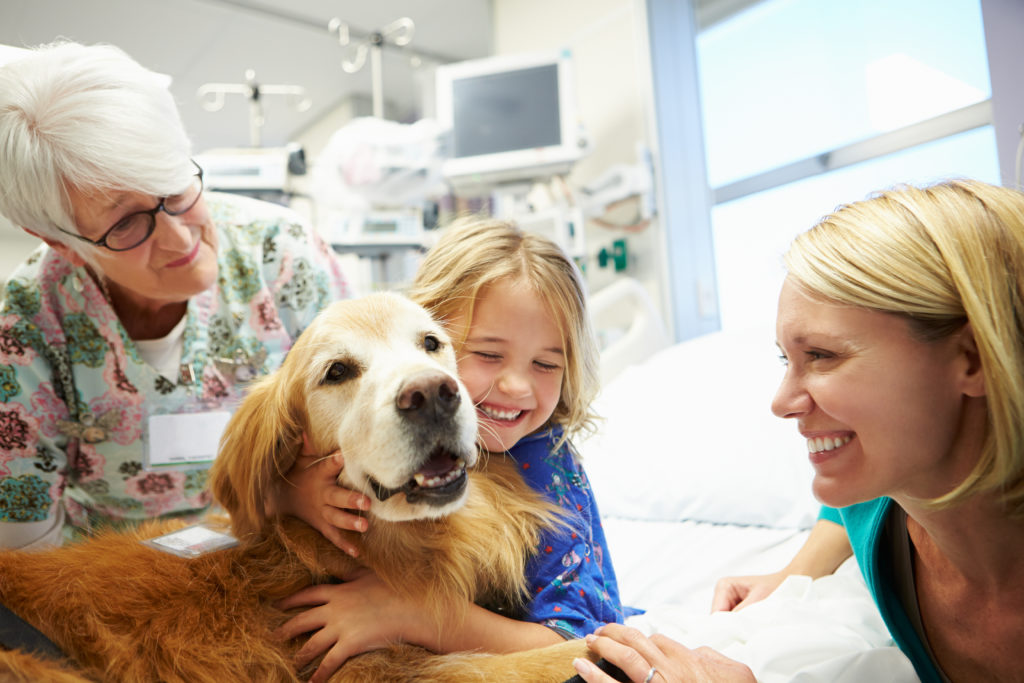Quick Hits
Daily brief research updates from the cognitive sciences

There have been lots of studies into the positive impacts of having pets around us – but this study just published looked at brain activation patterns while being with a dog, petting a dog, and with an ersatz cuddly toy lion.
The research showed that brain activation patterns were highest when petting dogs – unsurprising because this was the most interactive condition in the study. The researchers saw increased activity in the prefrontal cortex and notably in the medial prefrontal cortex which is associated with human social functions.
More surprisingly was that the cuddly toy elicited smaller responses – obvious you may think but in this study the cuddly toy was filled with a hot water bottle to be at the same temperature as a live dog and to have a similar fur texture. This was to elicit a response as close to the real thing as possible.
The response was lowest for the cuddly lion (but it did elicit a response) – possible because of the social activation as we realise it is not a live animal.
What was also interesting is that the response for petting the dog lingered on for a lot longer than any of the other conditions.
This shows that the response is not only in the moment but also has a lasting impact – that’s one reason to have pets but also an important consideration in animal assisted clinical therapy.

Andy Habermacher
Andy is author of leading brains Review, Neuroleadership, and multiple other books. He has been intensively involved in writing and research into neuroleadership and is considered one of Europe’s leading experts. He is also a well-known public speaker, speaking on the brain and human behaviour.
Andy is also a masters athlete (middle distance running) and competes regularly at international competitions (and holds a few national records in his age category).
References
Rahel Marti, Milena Petignat, Valentine L. Marcar, Jan Hattendorf, Martin Wolf, Margret Hund-Georgiadis, Karin Hediger.
Effects of contact with a dog on prefrontal brain activity: A controlled trial.
PLOS ONE, 2022; 17 (10): e0274833
DOI: 10.1371/journal.pone.0274833
More Quick Hits
Coffee Makes Business Teams More Effective
Quick HitsDaily brief research updates from the cognitive sciences just couldn’t resist reviewing this piece of research, from a few years ago, after I stumbled across this (likely because some background algorithm had recommended it to me based...
Caffeine Makes You More Prone to Impulsive Buying
Quick HitsDaily brief research updates from the cognitive sciences fascinating piece of research just published shows that drinking coffee makes you more impulsive. That means you are likely to buy more, and more items you actually don’t need....
Healthy Brains Are Hotter Than You Think
Quick HitsDaily brief research updates from the cognitive sciences hen we get sick we get a fever and we all know what our body temperature should be: around 37°C. Too much above that and we have a fever, and too much below and we risk...
Unpredictable Parents Disrupt Brain Circuitry in Children
Quick HitsDaily brief research updates from the cognitive sciences ntuitively we all know that good parenting is essential to kids’ healthy development. We all agree on that. But as soon as we try to define what good parenting is we then enter into...
A New Study on Inter-Brain Synchronisation
Quick HitsDaily brief research updates from the cognitive sciences n case you didn’t know it brain synchronisation (or inter-brain synchronisation) is a thing. And a pretty cool thing. This happens when two, or more, people do similar things...
Unique Social Genes in Human Beings
Quick HitsDaily brief research updates from the cognitive sciences ne differentiating factor with human beings is our pro-sociality. This means we are a social species, and this sociality is seen in our ability to empathise, be socially tolerant,...






